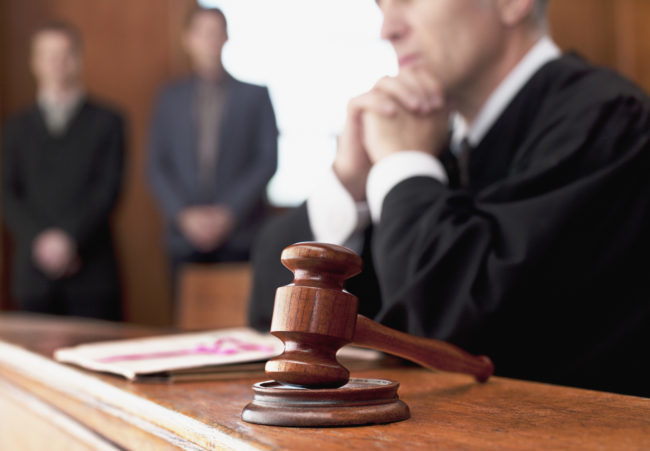On March 30, 2018, Madison Square Garden, and New York Knicks owner, James Dolan asked Judge Richard J. Sullivan to dismiss the defamation claims brought by former New York Knick, Charles Oakley. As we have previously reported, Oakley sued defendants in September 2017 for allegedly humiliating himafter he was kicked out of a New York Knicks game and labeled an alcoholic on a radio talk show.
According to the motion to dismiss, “[t]his is a meritless lawsuit brought by a famous former Knick who shamed himself while attending a game … and is now looking to shift the blame.” Further, the motion alleges that in his post-NBA years, Oakley has a history of altercations with security personnel, law enforcement, and then misuses the court system to accuse his victims of unlawful conduct. For example, in 2006, Oakley threw dice at a casino employee, causing a one-half inch laceration above the employee’s eye. In 2016, Oakley aggressively confronted and threatened Cleveland Cavaliers’ arena security guards outside the Cavaliers’ locker room when they refused to let him enter to join that team’s private celebration. And in 2017, Oakley was arrested for DUI.
Under New York law, a plaintiff alleging defamation is held to a much more “rigorous” standard in order “[t]o survive a motion to dismiss.” In New York, a plaintiff alleging defamation must plead five elements: a “defamatory statement of fact concerning the plaintiff; publication to a third party; fault (actual malice for public figures); falsity of the defamatory statement; and special damages or per se accountability (defamatory on its face).” Here, Oakley alleged that Dolan’s statements “accused him of having committed the serious crime of assault,” “accused him of suffering from the loathsome disease of alcoholism,” and “defamed him in his trade, business or profession.”
In their motion to dismiss, the defendants argued that Oakley failed to plead the necessary elements of a defamation claim. First, Dolan’s statements do not accuse Oakley of committing assault or any serious crime. Instead, the pleading simply states that Oakley “behaved in a[n] . . . abusive manner” at the February 2017 game, that “[h]e has a problem with anger,” and that he can be generally “abusive.” Second, alcoholism is not a “loathsome disease,” and even if it were, Dolan’s statements did not accuse Oakley of being an alcoholic; Dolan only stated that “he [Oakley] may have a problem with alcohol.” Defendants also cited case law which said, “[d]efendants’ statements that plaintiff was an alcoholic” simply “do not constitute slander per se.” Third, the challenged statements did not defame Oakley in his “trade, business, or profession” because Dolan’s statements do not specifically concern Oakley’s purported profession; rather, his general personal qualities.
Further, the defendants also argued that Oakley failed to plead special damages, meaning a loss of something of economic or pecuniary value, actual malice, meaning the speaker knew the statements were false, and defendants argued that Dolan’s statements were opinion. It is well-settled that “[a]n expression of pure opinion is not actionable” as it “receives the Federal constitutional protection.”

